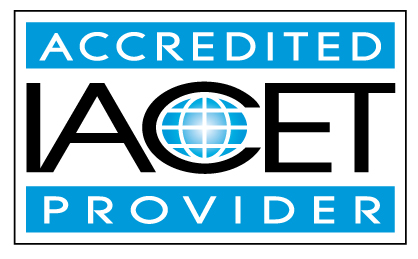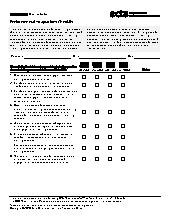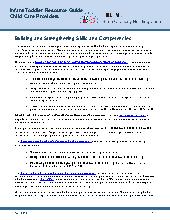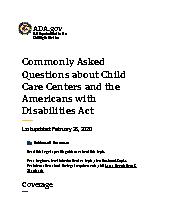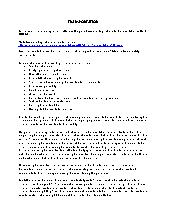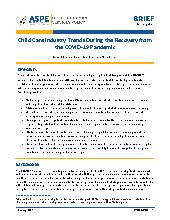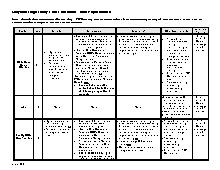Child Care Administration
Level
*Massachusetts Providers*
This course will only be accepted for yearly professional development hours for licensing. Trainings are not acceptable for certification in Massachusetts.
When you are a director of a child care program, you need to understand a variety of business and management practices as well as components of professionalism. Administrators who have adequate training in program planning and development and professionalism and leadership, are better capable of developing and maintaining a successful program. We developed this course to help new directors and administrators learn the skills necessary to plan, budget, #staff, and monitor childcare programs.
By the end of this training, the learner will be able to:
- Identify different types of risk management common in child care.
- Explain the importance of using contracts and employee training & screening procedures.
- Give examples of ways to apply and model ethical behavior and professional integrity with all children and youth.
- Give examples of ways to apply and model ethical behavior and professional integrity with community members and organizations.
- Give examples of ways to apply and model ethical behavior and professional integrity with families.
- Identify and contemplate bias and explore anti-bias approaches that support working with children and families.
- Identify staff evaluation tools and evaluation timelines that will assist with staff supervision and monitoring performance
- Identify a variety of marketing platforms to promote childcare programs.
- Identify and demonstrate an understanding of the content requirements for staff orientation.
- Demonstrate understanding of the roles and responsibilities of an administrator in a child care program.
- Define what it means to be a mentor.
- Explain the value of self-evaluation and reflection.
- Identify the different roles and responsibilities of a coach and of a mentor.
- Recognize the importance of maintaining confidentiality and privacy in communication with staff.
- Describe ways child care professionals can support advocacy issues.
- Identify the aspects of establishing a family child care business.
- Identify resources that will assist with record keeping.
- Give examples of ways to show respect for family differences.
- Define culture and cultural competency
- Demonstrate understanding of the content and implications of environment regulations and supervision requirements
- Recognize the importance of a positive and respectful attitude in working with all children and their families.
- Identify ways to reflect on one's own personal perspectives with courage and/or humility
- Identify ways to interact respectfully and appropriately in a variety of cultural contexts
- Recognize informal and formal assessments to plan activities, individualize programs, and improve program quality.
- Demonstrate an understanding of the impact of culture and diversity in relation to school readiness.
- Define the meaning of professionalism in child care.
- Give examples of ways to apply and model ethical behavior and professional integrity with staff and administrators.
- Describe ways to analyze classrooms for an anti-bias approach.
- Identify strategies to make connections and interact substantively with those who are different from oneself
- Identify strategies to listen while withholding judgement about the new or unfamiliar
- Identify effective strategies for interviewing potential new staff.
- Identify positive leadership techniques.
- Identify types of supervision.
- Demonstrate an understanding of how to be open to new perspectives and diverse others.
- Describe ways child care professionals can display leadership with families and the community.
- Define the role of a Coach for child care providers
- Identify the key elements of an effective staff mentor program.
- Describe the importance and value of coaching and mentoring.
- Identify necessary information and format for a business plan
- Demonstrate an understanding of the overall cost of child care
- Identify the important role parents and/or family members play in their child’s education.
- Distinguish different families’ expectations of childcare and what they want from the program.
- Demonstrate an understanding of ethical conduct: Statement of Commitment & Preamble
- Define the term multiculturalism and how it relates to the child's environment.
- Demonstrate an understanding of the necessary content of employee and parent contracts
- Demonstrate an understanding of diverse perspectives, and navigate the ambiguity and complexity that comes with that.
- Describe the importance of responding sensitively to differences in individual communication styles.
- Demonstrate an understanding of the value and importance of complex characteristics of children’s families and communities
- Demonstrate communication skills that enable intercultural communication, including effective listening skills
- Identify the importance of professional development for child care professionals and strategies to make meaningful choices.
- Demonstrate an understanding of the importance and components of a mission statement.
- Demonstrate an understanding of transitions within a child care program.
- Identify the symptoms and signs of poor time management in the child care environment.
- Explain the impact of stress on health and environment.
- Recognize the importance of problem solving and conflict resolution strategies with community members and families
- Identify communication issues that are common in the early care and education environment
- Recognize current tuition trends
- Identify budget line items and basic budget development strategies
- Demonstrate an understanding of the information that should be communicated regularly with staff, parents, and the community
- Criteria to earn CEUs:
- Certificates are awarded when the following criteria have been met by the learner:
- Class has been paid in full
- All material has been reviewed
- All review questions and final test have been completed with a passing score of 80% or higher.
- Learning Assessment Method:
- Learners will be assessed through questions after every section is completed. Learners will not be
allowed to proceed to the next section of the training until all questions have been answered correctly.
Learners will be presented with a final test composed of true/false and multiple choice questions.
Upon successful completion of the training, learners will receive their certificate by email.
- Learning Methodology:
- Online material will be presented in the form of slides,
accompanied with speech. Videos will be used to demonstrate ideas and concepts. Charts and tables
will be used for illustration.
- Logistics/Required Technology:
- A stable internet connection is required for the completion of this course. Users are highly encouraged to take their online course on Google Chrome on either a laptop or desktop computer. Speakers and/or headphones are also required to hear speech.
- Payment Policy:
- Payments need to be made in full. No refunds will be issued after starting the class.
- Proprietary or conflict of interest disclosure:
- Unless otherwise stated in the course description none of H & H subject matter experts and editor has any conflict or proprietary interests related to the material they prepared in this course.
- Support Services:
- Please visit our contact us page
You are purchasing a session of an online training that includes online assessments. Your certificate will be emailed to you once you pass the final exam with a passing grade of 80%.
Your certificate will bear the name you provided to us when you signed up. For support and questions regarding the material presented in this class please contact us at info@childcareed.com. Please consult our frequently asked questions page for other questions or feel free to contact us.
No prerequisites are required for the completion of this course.
Hours breakdown
30 PROTopics / Categories
ProfessionalismAdmin
Not Applicable
Basic
Latest Jobs
- California Child Care Resource Center (CCRC) Subsidized Child Care Payment Program
- Maryland Child Care Training Voucher Program: Empowering Child Care Professionals
- MSDE: Child Care Providers- H & H Child Care Training Center Is Here for You!
- Michigan Child Care Providers and the Child and Adult Care Food Program (CACFP)
- Understanding the Requirements for Michigan Child Care Assistants in Family Child Care Homes
- The Ultimate Guide to Medication Administration Training for Child Care Providers
- ASTHMA AND ALLERGIES Caring for Children with Asthma and Allergies in Child Care Facilities
- From Meds to Milestones: Why Medical Administration Training Is Crucial in Child Care Settings
- New Courses for Directors, Administrators, and Family Child Care Providers
- Family Child Care/ Home Daycares Eligible for MD Child Scholarship Funding
- A Beginner’s Guide to Medical Administration Training in Child Care
- Family Child Care providers required to take the 6 Hour Medication Administration training by January 2016
- Medication Administration Training for Child Care Providers
- Medical Administration Training for Child Care: Where to Get It.
- Master Child Care Administration with ChildCareEd
- Top 10 Common Mistakes to Avoid When Applying for the CDA Family Child Care Credential
- Why Maryland's Safety Training is Your Backstage Pass to the Child Care Concert?
- End-of-Year Tax Savings Tips for Family Child Care Providers
- Shine Bright with Your Renewal! Why This 18-Hour Family Child Care Training Is a Must for You
- Don't Miss Out: $766 in Expiring Coupons to Save Big on Child Care Courses!
